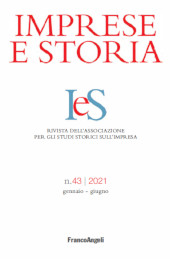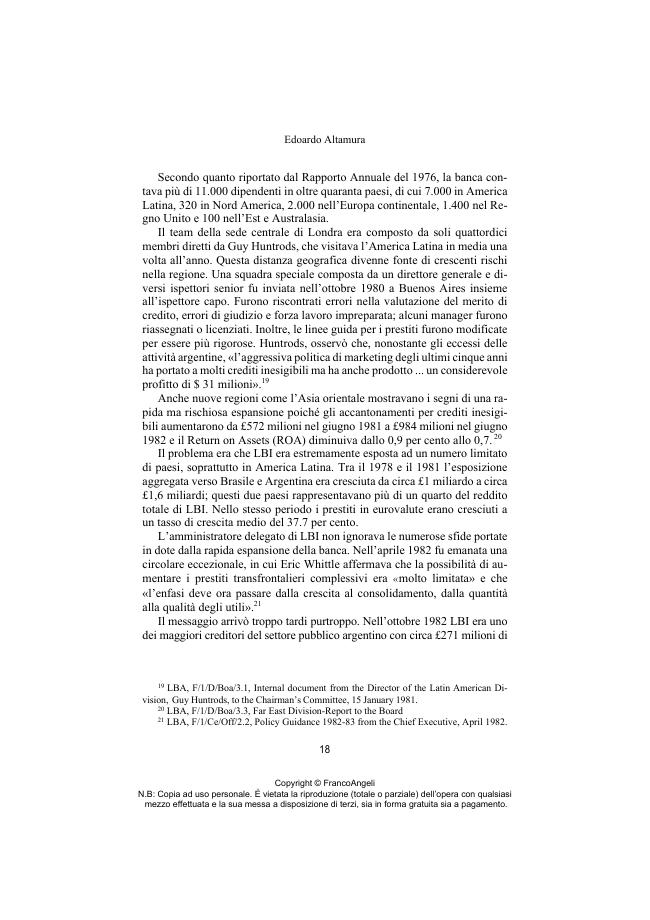Una banca controcorrente? : il caso della Lloyds Bank tra globalizzazione e localizzazione
7-28 p.
In January 1998, The Economist crowned the British bank Lloyds as the 'most valuable bank' in the world, calling it a 'money machine'. Such an accomplishment was far from inevitable for a bank that had been one of the hardesthit casualties of the sovereign debt crisis of 1982 when more than twentyfive countries found themselves unable to repay their accumulated debts. Having expanded excessively in the developing world, especially Latin America, in the 1970s, it took Lloyds more than a decade even to return to profitability. Its achievement was the result of a complete overhaul of Lloyds's business model and management. International subsidiaries and lending were cast aside, as was investment banking, as the bank concentrated its activities on domestic banking under the chairmanship of Sir Brian Pitman.
This paper will briefly analyze Lloyds history in the early twentieth century, the reasons behind its transformation from a domestic bank to an international powerhouse in the 1970s and, then, the reverse process in the 1980s and 1990s. Through the extensive use of recently disclosed archival records the paper will shed new light on several theoretically compelling questions, notably on how risk is calculated, how innovative decisions are taken by established institutions in a context of crisis and on the role of managers in shaping and changing the culture of these institutions. [Publisher's text].
Ist Teil von
Imprese e storia : rivista dell'Associazione per gli studi storici sull'impresa : 43, 1, 2021-
Artikel aus derselben Ausgabe (einzeln erhältlich)
-
Informationen
ISSN: 1590-6264
THEMENBEREICHE
KEYWORDS
- Banking Internationalisation, Commercial Banks, Oil Crisis, Latin American Debt Crisis, Banking History



